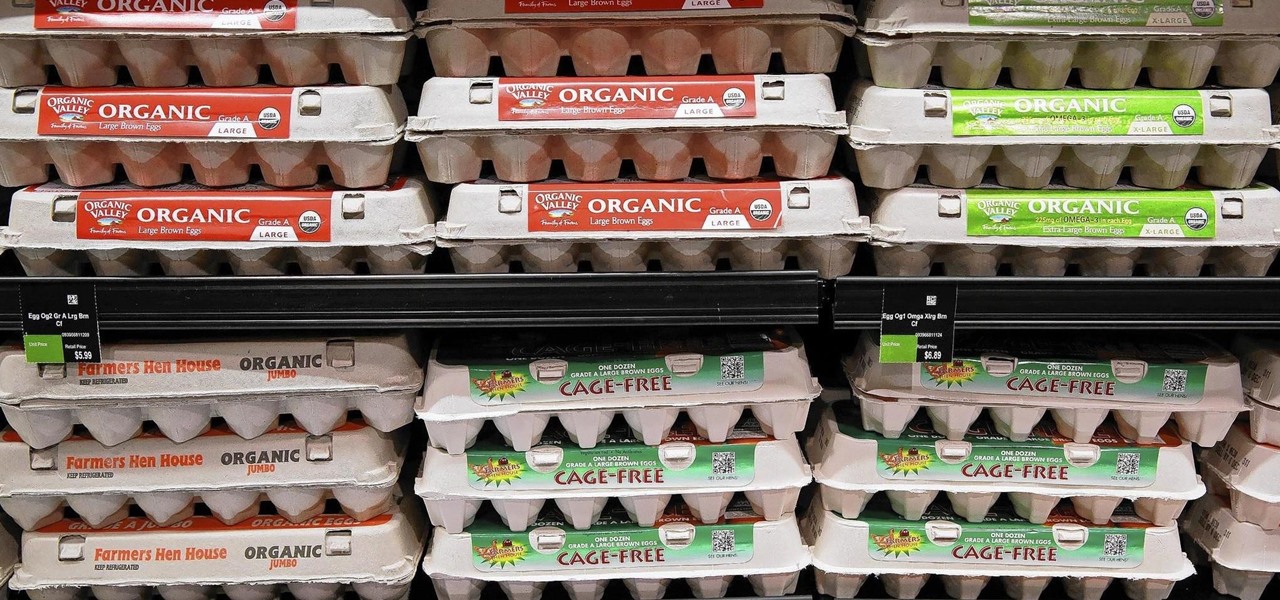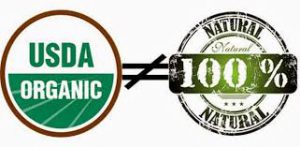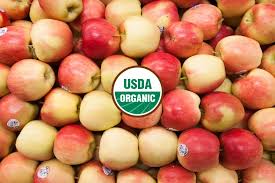
Which One Is Better?
Natural. Organic. These are words we see all over our grocery stores across the country. We may be more inclined to choose to purchase a food that is labeled either natural or organic, but do we know what these words truly mean? Why do these versions of our favorite foods cost more than their generic counterparts?

Let’s start off with “organic”. Organic labels guarantee that no toxic pesticides and no chemical fertilizers were used during production. It also means that no growth hormones or antibiotics were given to any animals during production. Random inspections are also conducted by third parties to ensure that these regulations are being followed. They are certified by the U.S. Department of Agriculture (USDA), heavily regulated, and have government-back assurance that your food is super safe for consumption.
What about “natural”? “Natural” is just as safe and unprocessed as “organic”, right? Not necessarily. The problem with “natural” or “all-natural” labeled products is that they are not Food and Drug Administration (FDA) or USDA regulated. So, this allows food manufacturers to label their products as “natural” when they could in reality be the farthest thing from it. The word makes it seem healthy, but in the end, it could still be heavily processed.

So, to answer the question of: Does what the label says really matter? The answer is yes! When it comes to labelling a product as “natural”, the FDA says, “the agency has not objected to the use of the term if the food does not contain added color, artificial flavors, or synthetic substances.” Many people believe “natural” means pure, untouched by humans, not processed, free of GMOs, and free of chemicals. According to the American Society for Nutrition, any “foods containing natural flavors, sweeteners, or other plant-derived substances can be labeled natural.” So, when it comes down to it, “organic” foods cannot be grown with pesticides, but “natural” foods can, because there are no regulations preventing it.

There are simply more criteria to meet when it comes to labelling a product as “organic”, which gives you more assurance than a “natural” labelled product will. Organic is always natural and non-GMO. Companies use the word “natural” for a reason. It is a way for them to make their products seem healthy and nutritious to consumers, but in reality, they get to make the product for cheaper and in a way easier method, with many less hoops to jump through.
Here is a quick breakdown from the USDA of some practices that are associated with each word:
-Toxic Pesticides: Organic- Not Allowed, Natural- Allowed (No regulation)
– GMOs: Organic- Not Allowed, Natural- Allowed (No regulation)
– Antibiotics: Organic- Not Allowed, Natural- Allowed (No regulation)
-Growth Hormones: Organic- Not Allowed, Natural- Allowed (No regulation)
– Sludge and irradiation: Organic- Not Allowed, Natural- Allowed (No regulation)
-Animal Welfare Requirements: Organic- Yes, Natural- No (No regulation)
-Pasture raised cows: Organic- Yes, Natural- No (No regulation)
-Lower levels of environmental pollution: Organic- Yes, Natural- Not necessarily (No regulation)
-Audit trail from farm to table: Organic- Yes, Natural- No (No regulation)
-Certification required, including inspections: Organic- Yes, Natural- No (No regulation)
-Legal restrictions on allowable materials: Organic- Yes, Natural- No (No regulation)
Many of us check food labels for calorie counts or sugar content, but how closely do you look at the certifications that product has? Do you choose something simply because it is labeled “natural”, thinking it will be healthier for you or your children? The beef for tonight’s dinner of Hamburger Helper may be labeled as “natural” but the only reason it says that is because it came from a cow. In reality, that cow was probably given a ton of growth hormone until it was big enough to slaughter. Your lettuce for tomorrow’s Caesar salad can be labeled as “natural” because it grew from the ground, but in reality, it was drenched in weed killer and pesticides. These practices make it less expensive and less work for these companies. The word “natural” helps them make money, while delivering a false promise to their customers, who they should be grateful for and willing to work a bit harder to keep healthy and happy.
Have you ever seen a product labeled as “made with organic” ingredients? This means that the item is not fully organic, but the USDA requires that in order to use this label, the product must be made with between 70 and 94% organic ingredients. A just plain “organic” label means that the product comes from at least 95% organic ingredients, as per USDA guidelines. If a product is 100% organic, it will be labelled with a “100% organic” label, which again, is certified by third party organizations. When it comes to organic, the product must be able to be traced and verified from birth/sprout to purchase.
When it comes down to it, the difference between “natural” and “organic” comes down to regulation. Organic foods are regulated, natural ones are not. There is much more wiggle room when you choose to label your items as natural, as opposed to labelling them as organic. We all want to eat more clean items and be healthier, so “natural” seems like an obvious choice. This is how these companies suck you in. You think you are consuming a minimally processed and untouched food, but in reality, you should have spent a couple more dollars and got the organic version. These companies use “natural” as a way to lure you in and take your money, while not delivering on their promise.
Organic items may cost a little more, but they are worth it when it comes to your health and safety. All in all, “natural” is just simply not what it sounds like… they are simply trying to trick you into purchasing their item. So, next time you are the grocery store, look out for the words “organic” and “natural”. Take the time to read ingredients and labels, and really investigate into what is in your food. That’s the breakdown between natural and organic. Which will you be choosing on your next grocery run?
